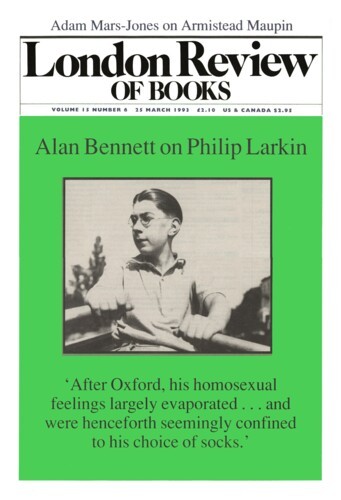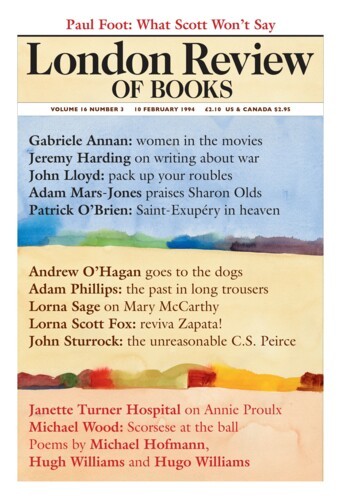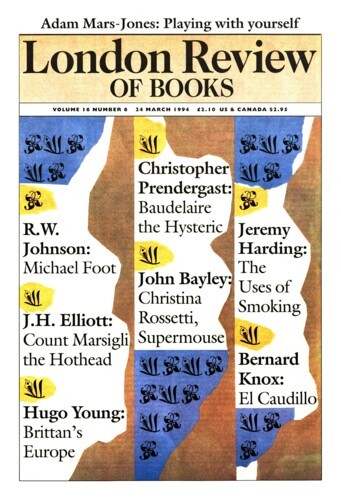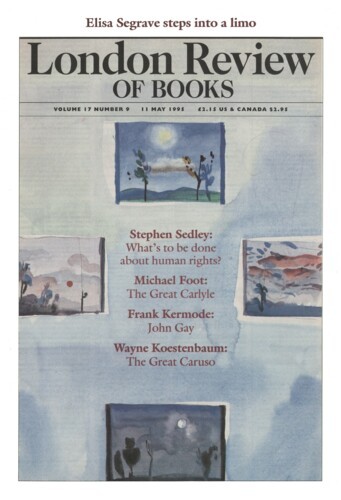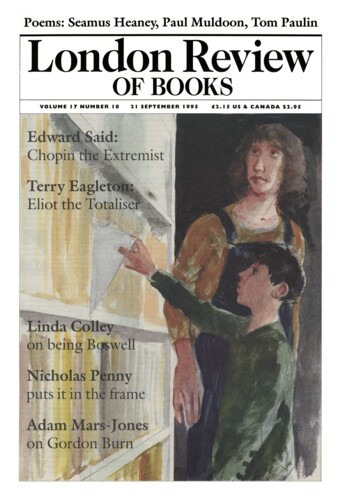Tweak my nipple
Adam Mars-Jones, 25 March 1993
Armistead Maupin’s Tales of the City, which started appearing as a newspaper serial in the mid-Seventies, and in volume form a few years later, are little classics of light literature: in their lightness they outweigh any number of more earnest enterprises. Maupin’s San Francisco is a carousel lightly disguised as a city, a continuous party where everyone is welcome without any tedious obligation to fit in, and even the hangovers are fun.
